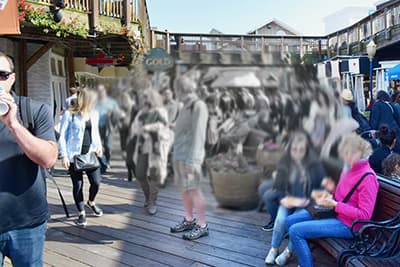What is Macular Degeneration?
 Macular Degeneration is a condition that affects the central area of your vision, which provides the ability to see small details such as road signs and print, and aids daytime vision. The cone cells in the macula, a region at the rear of the interior of the eyeball, respond to light and color. They break down on order to send an electrical response through the optic nerve to the brain.
Macular Degeneration is a condition that affects the central area of your vision, which provides the ability to see small details such as road signs and print, and aids daytime vision. The cone cells in the macula, a region at the rear of the interior of the eyeball, respond to light and color. They break down on order to send an electrical response through the optic nerve to the brain.
There is a yellow-colored pigment, Lutein, which is deposited in the retina to help prevent toxicity from ultra-violet and blue light. The cone photoreceptors are lined with fatty membrane and are connected to nerve fibers. Just beneath this carpet of photoreceptors is the retina pigment epithelium, and then a clear membrane- called the Bruch’s Membrane- that separates the retina from the underlying blood vessel layer.
Free radicals are formed during the vision process, which requires rapid neutralization by circulating antioxidants. In order to maintain the right chemistry, we need to choose healthy foods and supplements, digest and absorb them, have good liver function for storage and metabolism, circulation support, and sleep a solid five hours nightly. We also need to decrease inflammation in other parts of our bodies, which will compete for the antioxidants. So if your body has a low antioxidant “bank account”, degeneration in the macula may result. The cells cannot be rebuilt quickly enough.
What are the symptoms of Macular Degeneration?
 Symptoms of macular degeneration include: difficulty with small print, missing areas in vision, and distortion of the letters on a line. Ninety percent of people who have AMD have the dry, slowly progressive form of macular degeneration. The other 10 percent suffer from the wet form, which may cause a sudden loss of central vision.
Symptoms of macular degeneration include: difficulty with small print, missing areas in vision, and distortion of the letters on a line. Ninety percent of people who have AMD have the dry, slowly progressive form of macular degeneration. The other 10 percent suffer from the wet form, which may cause a sudden loss of central vision.
What is Dry Macular Degeneration?
In the dry form of macular degeneration, toxic byproducts accumulate in the Bruch’s Membrane, forming yellow spots called drusen. The pigment layer can also erode, further limiting the body’s ability to clear toxic materials from the eye. Again, the goal is to increase your antioxidant bank account and make good lifestyle choices to keep these cells functioning well.
What is Wet Macular Degeneration?
In the wet form of macular degeneration, blood vessels may invade the retina and begin bleeding, causing sudden vision loss. Some people will respond to immediate intravitreal injections of medication, but others may be left with a large blind spot and the loss of reading vision in that eye. Therefore, it is important to contact an eye doctor immediately and begin preventive measures for the other eye, as well.

